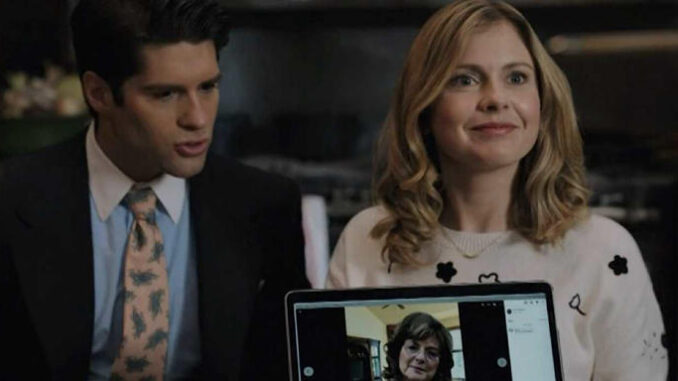
From Giggles to Gnashers: The Romantic Comedy Vampire Renaissance
The spectral tenants of Woodstone Manor have proven that laughter can echo through the ages. Now, the creative minds behind CBS's surprise hit, "Ghosts," are trading in ectoplasm for a taste of the sanguine, venturing into the realms of the undead with a new romantic comedy series centered around vampires. This move, seemingly a natural progression from the quirky supernatural to the darkly alluring, suggests a brewing renaissance for the vampire genre, one where fangs and romance intertwine with humor and heart.
"Ghosts" succeeded not just by exploring the historical baggage of its quirky residents, but by grounding their absurdities in genuine human connection. It's a testament to the writers' ability to craft relatable characters, even when those characters are centuries-old phantoms. This strength, a hallmark of their previous work, is precisely what gives this new vampire romantic comedy the potential to transcend the often-worn tropes of the genre. Forget the brooding Byronic hero and the damsel in distress; imagine a world where a hopelessly romantic vampire, burdened with centuries of loneliness and a penchant for awkward social encounters, stumbles upon a human partner as equally flawed and endearing.
The possibilities are both comedic and captivating. Perhaps our vampire protagonist is hilariously out of touch with modern dating norms, mistaking blood types for astrological signs and attempting to woo potential partners with serenades sung in ancient Sumerian. Maybe the human lead is a cynical pragmatist, initially repulsed by the fangs and the nocturnal lifestyle but slowly charmed by the vampire's awkward charm and genuine desire for connection. The contrast between the ancient, often melancholic nature of vampires and the fast-paced, ever-changing world of modern romance offers fertile ground for comedic gold.
Beyond the humor, the core of a successful vampire romantic comedy lies in its exploration of themes that resonate deeply with audiences: loneliness, acceptance, and the enduring power of love. Vampires, inherently outsiders, are often depicted as perpetually yearning for connection, their immortal existence paradoxically isolating. By placing a vampire at the center of a romantic comedy, the creators have the opportunity to explore these themes with a fresh and nuanced perspective. What does it mean to truly connect with someone when you've lived for centuries? How does the fear of mortality, or the lack thereof, impact a relationship? The inherent drama of these questions, softened by the comedic framework, allows for a deeper exploration of human emotions.
Moreover, the choice to embrace the romantic comedy genre suggests a welcome departure from the dark, gothic narratives that often define vampire lore. While shadows and suspense are intrinsic to the genre, the new series offers the promise of sunlight filtering through the cracks, illuminating the lighter side of vampirism. Perhaps we'll see vampires engaging in everyday activities with a darkly comedic twist – attending support groups for bloodlust management, navigating the perils of online dating with a supernatural twist, or even just trying to find a decent dry cleaner that can handle the occasional bloodstain.
Ultimately, the success of this new series will depend on its ability to blend the humor and heart that made "Ghosts" a success with the unique allure and inherent drama of the vampire mythos. By focusing on relatable characters, exploring universal themes, and embracing the comedic potential of the undead, the creators have the potential to usher in a new era for the vampire genre, one where romance is as sharp as the fangs and laughter echoes through the centuries. The blood may be red, but the future of vampire romantic comedy looks surprisingly bright.